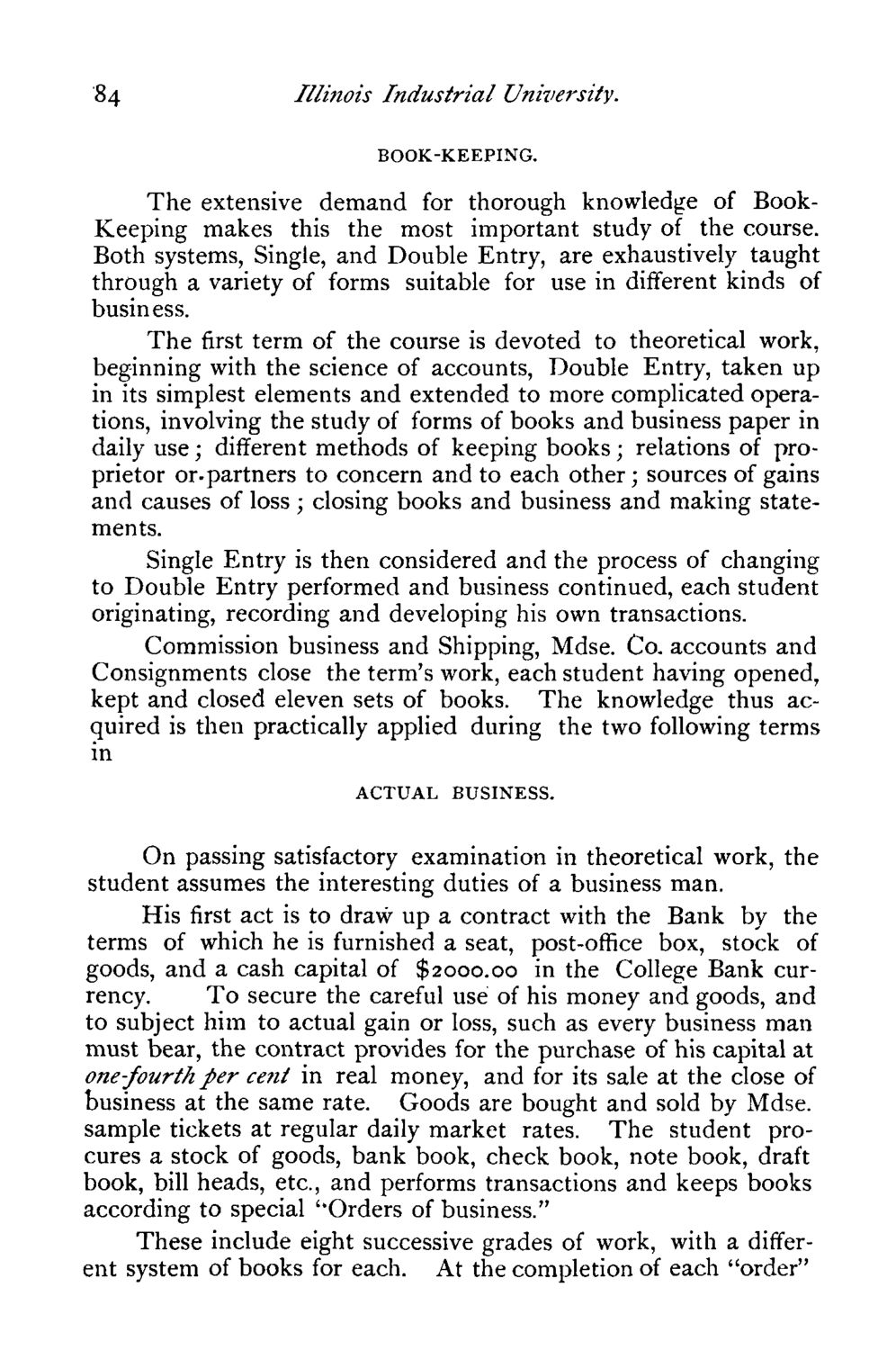| |
| |
Caption: Course Catalog - 1878-1879
This is a reduced-resolution page image for fast online browsing.

EXTRACTED TEXT FROM PAGE:
84 Illinois Industrial Unhiersity. BOOK-KEEPING. The extensive demand for thorough knowledge of BookKeeping makes this the most important study of the course. Both systems, Single, and Double Entry, are exhaustively taught through a variety of forms suitable for use in different kinds of business. The first term of the course is devoted to theoretical work, beginning with the science of accounts, Double Entry, taken up in its simplest elements and extended to more complicated operations, involving the study of forms of books and business paper in daily use; different methods of keeping books; relations of proprietor or-partners to concern and to each other; sources of gains and causes of loss; closing books and business and making statements. Single Entry is then considered and the process of changing to Double Entry performed and business continued, each student originating, recording and developing his own transactions. Commission business and Shipping, Mdse. Co. accounts and Consignments close the term's work, each student having opened, kept and closed eleven sets of books. The knowledge thus acquired is then practically applied during the two following terms in ACTUAL BUSINESS. On passing satisfactory examination in theoretical work, the student assumes the interesting duties of a business man. His first act is to draw up a contract with the Bank by the terms of which he is furnished a seat, post-office box, stock of goods, and a cash capital of $2000.00 in the College Bank currency. To secure the careful use of his money and goods, and to subject him to actual gain or loss, such as every business man must bear, the contract provides for the purchase of his capital at one-fourth per cent in real money, and for its sale at the close of business at the same rate. Goods are bought and sold by Mdse. sample tickets at regular daily market rates. The student procures a stock of goods, bank book, check book, note book, draft book, bill heads, etc., and performs transactions and keeps books according to special '"Orders of business." These include eight successive grades of work, with a different system of books for each. At the completion of each "order"
| |